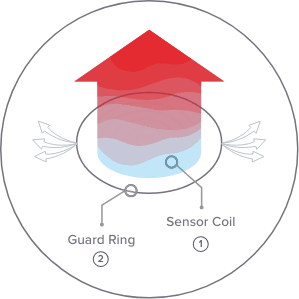Tx Thermal Effusivity Touch Tester
Quantify the Warm-Feel / Cool-Touch Sensation of Textiles and Fabrics according to ASTM D7984
C-Therm’s touch tester is the only product for quantifying touch performance that fully complies with ASTM D7984. The Tx Touch Tester is employed by the top global sports apparel brands and textile testing labs including Adidas, Columbia Sportswear, Marks (Canadian Tire), Intertek, the Taiwan Textile Research Institute, and Bureau Veritas.
Touch is a critical performance attribute in material selection and quality control for bedding textiles, automotive, and fabrics apparel sectors. Thermal effusivity quantifies how materials feel to the touch, whether warm or cool, taking away the guesswork for industries that want to improve product performance.
This testing was traditionally performed using panels of people, who could subjectively verify whether one material felt warmer or cooler than another, as the thermoreceptors in the human hand can detect the difference between materials. However, such human touch testing is extremely subjective to people doing the touch testing, and having an instrument that can accurately measure thermal effusivity takes away this variability for testing a wide range of materials for different use cases and applications.
Materials with a low thermal effusivity feel warmer and materials with a higher thermal effusivity feel cooler. Testing materials for their thermal performance and touch properties has a broad range of applications, including activewear, diapers, denim, and personal protective clothing, to name a few.
Thermal effusivity testing for textiles has been standardized by the American Society for Testing Materials (ASTM). The industry led standard, ASTM D7984, utilizes C-Therm’s patented Modified Transient Plane Source (MTPS) technology for measurement. C-Therm’s MTPS sensor, employed by the TX Effusivity Touch Tester, is the only standardized instrument for characterizing the thermal touch properties of textiles and other materials.


